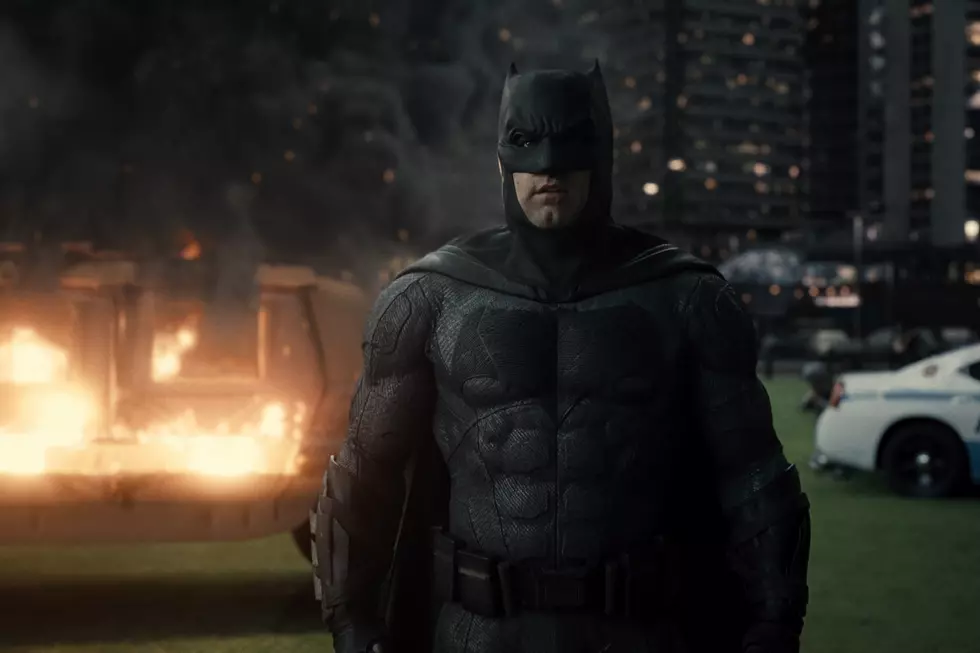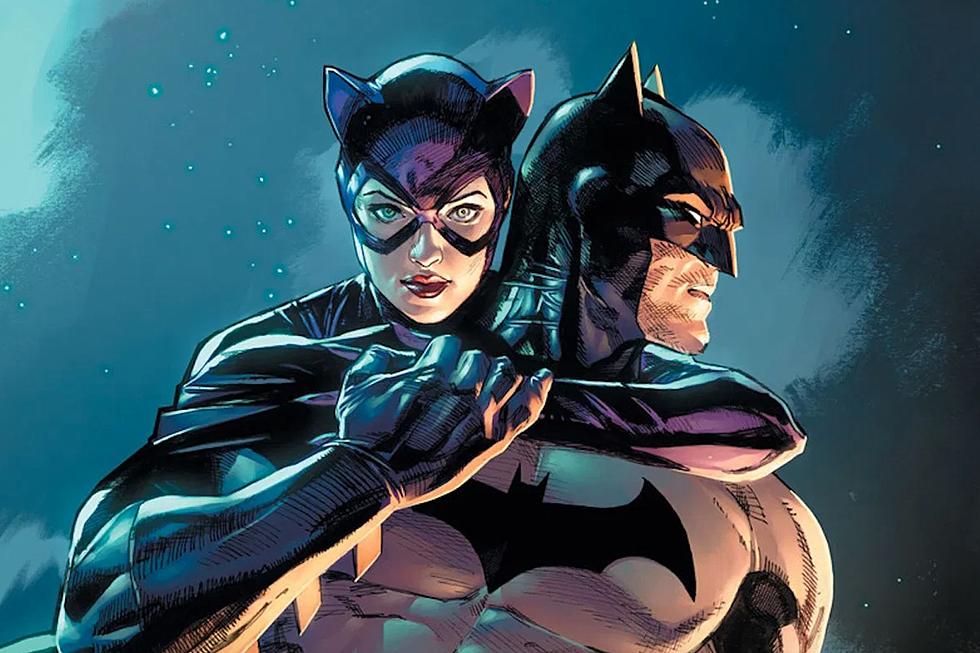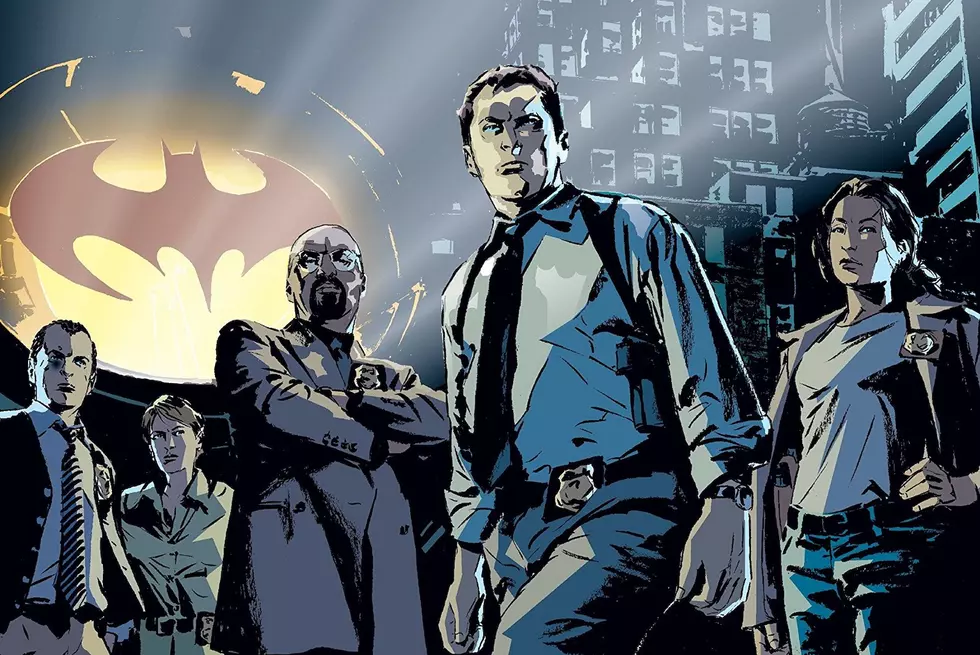
Grant Morrison Inc: Why Going Corporate Can Be Magical

In the five years since writer Grant Morrison assumed writing duties for Batman, he has redefined the character for a new generation. By looking beyond the dark and gritty work of Frank Miller – the model that informed every Batman story for over twenty years – and sending the character on an inverted journey through pre-Dark Knight history, the franchise has become reconnected with roots that once seemed permanently excised. And now, with Batman Incorporated, one of the most iconic fictional characters of the previous century is now poised to achieve new relevance in the twenty-first, piggybacking on an ever-increasing concern for global awareness.
Next. On ComicsAlliance: Ever danced a corporate dalliance in the pale moonlight? Millionaire playboys, superstar writers, and why selling out can be a good thing.Grant Morrison has a habit of writing himself into his comics. Of course there are his most famous forays into self-reference: Animal Man, in which Morrison writes himself into the story as the all-powerful "writer," and the three-volume The Invisibles full of biographical references and a main character, King Mob, based on him. He even makes a cameo in the Seven Soldiers of Victory metaseries, as one of the Seven Unknown Men of Slaughter Swamp, each of them based on writers and editors who had been written into DC Universe stories throughout the years.

But even when he's not making it that easy for us, explicitly appearing as Grant Morrison next to fictional characters, he's writing himself into his books. It's one of the hallmarks of his work – even though you may be reading Doom Patrol or JLA, New X-Men or Final Crisis, you're really just reading about Morrison. Really, with any writer, all you're reading about is them: whatever interests them at the time, whatever personal issue needs to be worked out is there under the surface, whether the writer is conscious of it or not.
The difference is that Morrison is conscious of it and makes greater use of it than anyone not doing straightforward biography. And as his career has gone on and we've seen him become increasingly accepted-by/integral-to the mainstream, as he's morphed from that guy who wears frilly shirts and expects us to know all nine hundred versus of "Goblin Market" to the shaven-headed Armani wearer who looks like he could seriously kick your ass, corporations have taken an increasingly positive role in his work.

As part of the first wave of British creators, Morrison was one of those architects of the eighties who helped move superhero comics into a more "realistic" space -- more culturally relevant is probably the proper definition. We needed different enemies. The average reader was older and smarter, raised near the tail end of the Cold War and over the birth pangs of the information age. Mad scientists weren't cutting it anymore. So alien invaders gave way to corrupt organizations, and Lex Luthor went from an evil genius to a greedy a--hole. (It wasn't just a British thing – in fact, Dennis O'Neil and Neal Adams got the whole movement going in the seventies.) While Animal Man and Doom Patrol never did anything as obvious as assign corporate antagonists, they were very much a part of that shift in collective consciousness.
In the nineties, though, as he edges closer to the mainstream, Morrison's attitudes seem to change, practically before our very eyes. In what was really his first straight superhero book, 1996's Aztek: The Ultimate Man (co-written with fellow Glaswegian Mark Millar), the titular character has been raised from birth by an organization known as the Q Society to battle the returning Aztec god Tetzcalipoca. (It's a great series, very overlooked at the time, and recently collected as JLA Presents: Aztek.) The Q Society is run very much like a corporation, and in a major turn Aztek discovers that among its confidential investors/benefactors is none other than Lex Luthor, who wanted a spy in the Justice League. Which is funny, partly because one of the reasons Morrison was selected for the JLA revamp was the popularity of Aztek in the DC offices.
So bald genius Luthor helps create a hero so that he can infiltrate the JLA; bald genius Morrison creates a hero so that he can infiltrate the mainstream and write JLA. Spooky, right?
 Around this time, the first volume of The Invisibles ends with a sputter. Though praised by many as a smart countercultural thrill ride, it doesn't have enough action for many. It's too British. When the series returns for volume two, Morrison moves the team to America and amps up the action, bringing the term "ultraviolence" back into circulation. He uses the character Mason Lang more, an independently wealthy American who brings a corporate philosophy to the group's operation. Sales go up, the second and third volumes are allowed to finish, and it's one of the most-acclaimed comics of the last twenty years.
Around this time, the first volume of The Invisibles ends with a sputter. Though praised by many as a smart countercultural thrill ride, it doesn't have enough action for many. It's too British. When the series returns for volume two, Morrison moves the team to America and amps up the action, bringing the term "ultraviolence" back into circulation. He uses the character Mason Lang more, an independently wealthy American who brings a corporate philosophy to the group's operation. Sales go up, the second and third volumes are allowed to finish, and it's one of the most-acclaimed comics of the last twenty years.
When Morrison made the jump to Marvel in 2000, he fully embraced the mainstream and corporate comics. In the third and best issue of the excellent Marvel Boy miniseries, the so-called Hexus, The Living Corporation is featured. As described in the book, the alien entity is "invisible, untouchable: a living idea" that "grows by hiring new employees and devouring its rivals." Noh-Varr kills Hexus by giving the operations manual to every corporation on Earth.
In New X-Men he introduced X-Corporation, an organization founded by Professor Xavier that exported the idea of the X-Men to major cities around the world through satellite offices that supported mutant rights. And while Marvel foolishly had the majority of his run retconned out of existence, this concept has stuck with writers like Ed Brubaker and Matt Fraction.
There's no doubt that Grant Morrison is one of the most influential comics creators of all time, and whatever form the medium takes in the future, there are likely to be lots of comics wishing they were Morrison comics. There already are. But some of his most interesting works might never have been if he hadn't embraced the idea of being mainstream. In interviews around the time of Animal Man, Arkham Asylum, and Doom Patrol – in particular, an interview for Amazing Heroes – it seems almost impossible to imagine. This was the man who wrote The New Adventures of Hitler, after all. He talked of retiring, like he'd already done everything he wanted to in comics.
But then there was a shift. And as he warmed to being mainstream, he allowed the corporate influence into his work in both concrete and thematic ways, shaping it into something newer and better. If he hadn't "sold out," comics would be so much poorer, and he did it without giving up an ounce of weirdness or cynicism. This is the man who coengineered We3, a cuddly storm of knives to the heart of the military industrial complex and so-called scientific progress. But New X-Men, All-Star Superman, Final Crisis and so many other great comics might never have seen the light of day, including the Batman titles. Where, of course, Morrison recently took the theme to a new level by transforming Batman, one of the most iconic figures in comics, into a literal multi-national corporation in Batman Inc.
On his official website, Morrison features a couple of essays on his take on magic called Pop Magic, which include mention of something he refers to as "corporate magick," results-driven memetics and symbolism in corporate strategy and advertising:

And on Morrison's old website – the one with black text on a red background, apparently he's not a genius at everything – he responded to a reader's e-mail about corporate magic by saying, "Those corporate mofos have been stealing ideas from the occult underground for at LEAST ten years now. It's time we started playing them like harps using our far superior knowledge, style and cool."
Like Hexus, ideas are living things that propagate. As Bruce Wayne says in Batman: The Return one-shot, "we fight ideas with better ideas." And maybe the best way to do that really is to go corporate -- if you know how to work the right kind of magic.
Next time. On ComicsAlliance: Mirror! Give me a mirror! (Slowly building Jack Nicholson laughter): Shaving tips for super-villains and iconoclasts.
More From ComicsAlliance









